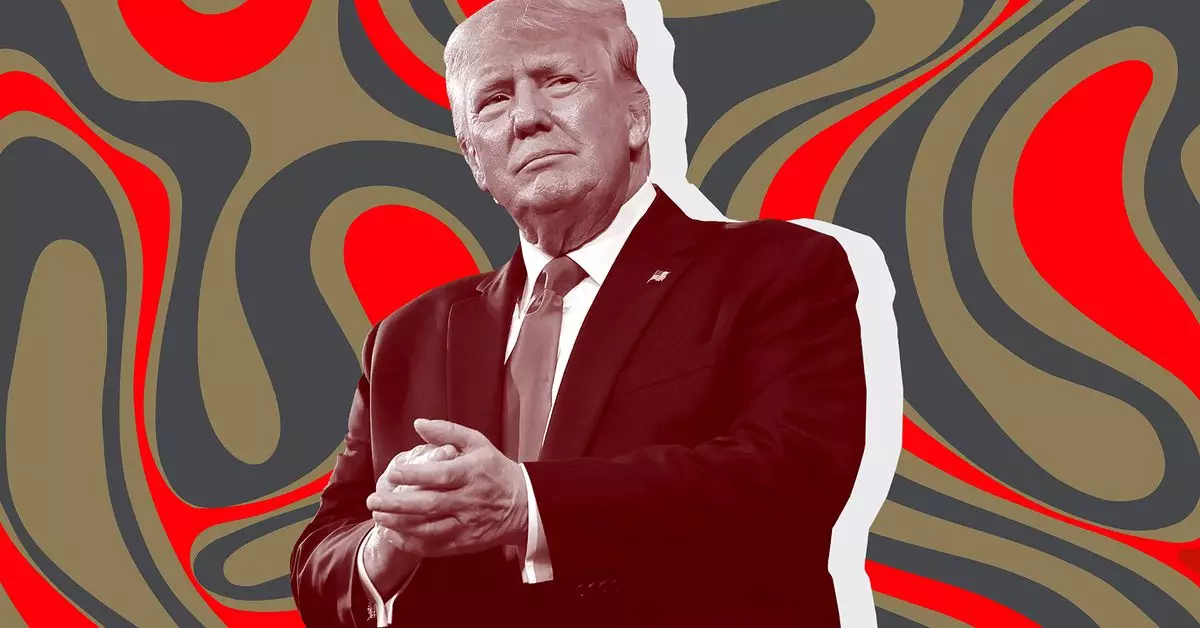The recent foray into the world of cryptocurrency by Donald Trump has generated considerable debate and intrigue within the financial community. World Liberty Financial, co-founded by Zach Folkman, aims to create a decentralized finance (DeFi) platform that can potentially shift how financial transactions are conducted—particularly for those often marginalized by traditional banking systems. However, the launch of their WLFI token has been met with both excitement and obstacles, raising questions about the feasibility and implications of such ventures in the rapidly evolving cryptocurrency landscape.
On the day of its token sale, the much-anticipated World Liberty Financial platform experienced catastrophic website outages due to overwhelming traffic, a clear indication of the substantial interest generated prior to its launch. Folkman touted that over 100,000 users registered to participate in the token sale, indicating robust demand. However, the excitement soon met the cold reality of the market; as reported by Etherscan, merely 5,317 unique wallet addresses successfully held the WLFI token shortly after the launch.
The discrepancy between potential interest and actual participation starkly highlights a common phenomenon in the cryptocurrency space—a significant gap between marketing hype and practical uptake. It was reported that the site received an astonishing 72 million unique visits within the first hour, which clearly illustrates the level of curiosity surrounding the project. While high traffic can signal demand, it can also showcase vulnerabilities in website design and server capacity, areas where the World Liberty Financial team failed to prepare adequately.
An important distinction of the WLFI token sale is its limitation to accredited investors, a classification outlined by the SEC. To qualify as an accredited investor, individuals must meet specific financial criteria, including a minimum annual income or a substantial net worth. This stipulation starkly contrasts with a professed mission to provide financial services to the unbanked and de-banked, ultimately restricting access to a narrow demographic of primarily affluent individuals.
Such regulatory constraints may foster skepticism from potential users who may feel excluded from a platform that claims to have an altruistic aim. The situation raises critical questions: Can a platform genuinely support underserved populations while simultaneously limiting participation to only those meeting stringent financial criteria? This paradox illustrates a broader challenge faced by many cryptocurrency projects: balancing regulatory compliance with inclusivity.
The WLFI token is intended to facilitate governance within the World Liberty Financial ecosystem, empowering holders to vote on critical decisions regarding the platform’s development and operations. While this decentralization is a promising feature found in many blockchain projects, the non-transferable nature of the WLFI token in its initial phase may raise concerns about user engagement and functionality. If token holders are unable to trade or leverage their assets, the incentive for active participation may wane, thwarting the intended decentralized governance model.
Looking ahead, the pathway for World Liberty Financial appears littered with challenges requiring strategic navigation. With plans to integrate third-party DeFi applications and digital wallet services, the real question is whether the project can actualize its vision amidst regulatory uncertainties and operational hurdles. The mention of a “gold paper,” akin to a whitepaper, outlines ambitious goals but must be complemented by tactical execution to build trust and credibility in a crowded market.
As World Liberty Financial unveils its token and outlines its mission to reshape financial access, it stands at a crossroads of opportunity and obligation. While there is undeniable enthusiasm surrounding the project, the limitations imposed by current regulatory frameworks and the need for a user-friendly experience represent substantial challenges that will need to be addressed. The coming months will be crucial in determining whether this initiative will succeed in establishing a meaningful presence in the DeFi space or become yet another fleeting chapter in the ever-evolving cryptocurrency narrative. The world is watching closely, and the implications of this launch extend far beyond the confines of traditional finance.

